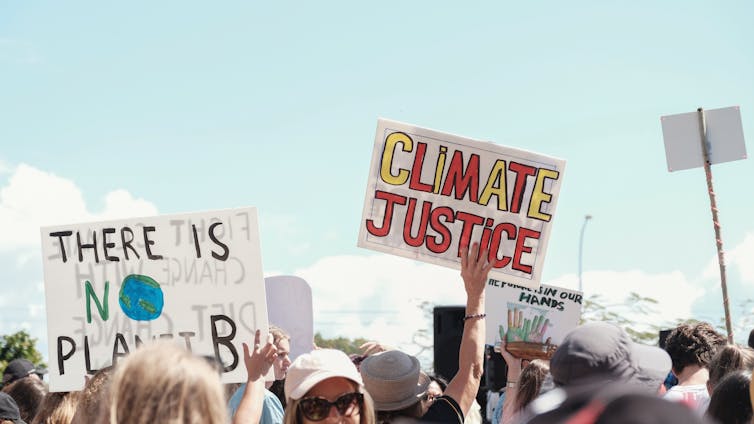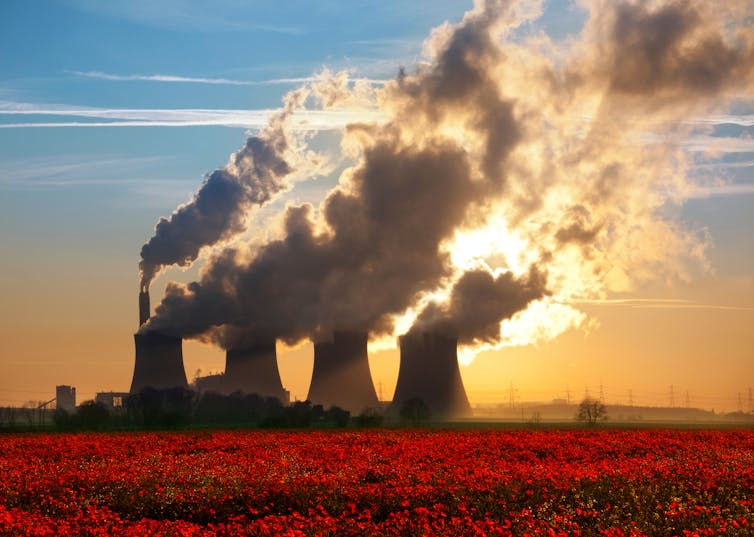New year message
New year to all my readers. I wish you a successful and productive year – like I will have – unless you’re a Tory or Republican, Fascist, Racist, Xenophobe or a climate crisis-denying ignoramus. [ed: apologies that I forgot to exclude misogynists.]
We have to make some real progress on the Climate Crisis this year – at least Scotland is a good example. [2/1/20 Hopefully Murdoch will be dead soon.]
I’m hoping to pay a lot of tax for this year. I’ll probably still kick ass even if that doesn’t happen. I’ll also be being more sexy – easy enough: get fitter, lose a little weight, have sex. I don’t doubt that many people want to take me out. I’ve been so skint lately that an evening out has been shopping at a discount supermarket. I’m open to suggestions of all sorts but please keep it green e.g. no flying involved.
I’m starting my Biac* project today. More on that later.
*Boris is a …
4/1/20 I’m tagging something minor on here for the benefit of those who are keen to connect apparently unconnected events. I was burgled in 2019 and was woken by an uninvited strange man in my bedroom at 6.30am. (and the answer is no chance;) 4/1 later: I may be mistaken about this and it’s not important anyway ;)
Comment on General Election result
As a supporter of the Labour Party under Jeremy Corbyn and his allies, I was truly shocked and disappointed by the result of the recent general election. The Labour Party achieved an unexpected poor result losing 59 seats while the Conservatives won an additional 47 seats. I expected the Labour party to improve on their 2017 result.
Boris Johnson shamelessly and repeatedly lied during the campaign – the big lie being “get Brexit done” – but also 40 new hospitals, 50,000 new nurses and “… no checks on goods going from GB to NI and NI to GB …”. While the media failed to nail him on his incessant lying he was also assisted by burying a report into Russian interference in British politics and the Metropolitan Police inquiry into his sponsorship of Jennifer Arcuri getting postponed until after the election.
The electorate latched onto the “get Brexit done” lie and that BJ’s BJexit deal is a Trumpian “great deal” while Labour failed to convey the message that Brexit fatigue and turmoil is all down to the Conservatives.
Jeremy Corbyn proved personally unpopular. People refer to him as a Communist without realising that he is simply a typical Democratic Socialist with a typical Socialist agenda. There were accusations that he would slaughter Kulaks and the intention to nationalise and provide free broadband was accused of being Communism. There is nothing wrong with having utilities and train services provided by the state – that is the normal way of doing it.
Jeremy Corbyn’s personal unpopularity must be down to the incessant and unjustified accusations of anti-Semitism. Zionists have succeeded in imposing Israel’s veto on Jeremy Corbyn. That veto is documented. Labour’s policy of appeasing the Zionists has failed.
Jeremy Corbyn and the Labour party proposed a real Socialist alternative. The manifesto was huge because they have a real vision of change.
Despite proposing real policies to address the climate crisis, it appears that the public remain ignorant of the pressing need for action.
I feel for the Labour party and fellow Socialists and climate activists.
I’m a climate change scientist – and I’m campaigning for Labour this election

The 2019 UK general election matters because the climate emergency means that the next decade is critical for the future of humanity. Only a Labour government can really turn things around, not just in the UK, but globally. This may sound exaggerated, but it’s true. Let me explain.
While flooding has affected people in Yorkshire during the election period, look further afield and many millions are suffering the impacts of catastrophic floods in Central and East Africa. Fires have raged in Australia and things will get a lot worse until humans stabilise Earth’s rapidly changing climate. To do that means carbon emissions need to decline to zero. Fast.
Pursuing policies to limit warming to 1.5℃, as the Paris Agreement mandates, is a two part process. Stage one is to halve global emissions by 2030. Stage two is to eliminate the other half by 2050. Getting the world to zero emissions is extremely difficult as it means every sector of every country needs to get to zero. We can still pollute, but every tonne of carbon dioxide emitted will need to be immediately captured again, giving a net impact of zero emissions.
A serious plan
Finally, after 30-plus years of scientists explaining the problem, a major political party of a major economy has a serious plan for part one of the process. After wrangling between grassroots activists and trade unions, the Labour Manifesto pledges that the “substantial majority” of UK emissions will be eliminated by 2030. This isn’t bluster, as there is serious investment planned across electricity production (more wind and solar), buildings (retrofitting all UK houses to high efficiency standards), transport (investment in buses, only electric cars sales from 2030), and heavy industry (research and development into hydrogen and carbon capture technology), to name a few sectors.
Crucially, this would be driven by those who control the finances of the country. A new Sustainable Investment Board would bring together the chancellor, business secretary and Bank of England governor to oversee and co-ordinate these major investments. A National Investment Bank with £250 billion allocated for decarbonising the economy provides serious funds. And climate and environmental impacts will be included in the Office for Budget Responsibility forecasts, so that the cost of not acting will be factored into every government decision.
Labour are calling it a Green Industrial Revolution. And it would be. It is a far-reaching set of policies and investments befitting the scale of the problem.
Tory plan ‘lacks ambition’
By comparison the Conservative Party manifesto lacks ambition and seriousness. Capital spending on climate – broadly conceived – is just £20 billion. There is no overarching strategy to reach net zero. As the independent analysts, the Institute for Fiscal Studies, said of the whole manifesto, “If a single Budget had contained all these tax and spending proposals we would have been calling it modest. As a blueprint for five years in government the lack of significant policy action is remarkable.”
While the Conservatives have a net zero target of 2050 and official UK emissions have dropped by 43% from 1990 levels, most of the reduction has come from the power sector, and the low-hanging fruit of switching from coal-fired electricity generation to gas and renewables. Beyond this, their record over the past decade in government has been poor – emissions from transport, buildings and agriculture have not declined over recent years.

In 2019, the government’s own independent advisers, the Committee on Climate Change, said that only one of 25 policy recommendations had been delivered, and the UK is on track to miss its binding interim carbon budget for 2023 to 2027.
The stakes couldn’t be higher
Of course, UK emissions are just 1% of the world’s total, so does it matter what the UK does? It does. First, because every country needs to get to net zero emissions. Second, as the fifth largest economy in the world, large and sustained reductions in emissions across all sectors simultaneously would become a beacon to other countries to learn from the UK and reduce their emissions more quickly. Third, Labour would use £4 billion of new overseas development funds help countries leap-frog the fossil fuel age.
Finally, geopolitics matters. The world is gripped by right-wing populists who are often hostile to tackling climate change. Brazil’s Jair Bolsonaro abandoned hosting this years’ UN climate talks, while Donald Trump plans to pull out of the Paris Agreement. Fearful inward-looking nationalism means that the internationalism necessary to tackle climate change is being eroded.
The antidote to the rising right-wing populism that Brexit and Boris Johnson are part of, is a Labour government with a Green Industrial Revolution at its heart. And just as Brexit spurred the Trump campaign, a win for Labour would increase the chances of the Democrats in the US reaching office and pursuing a similar Green New Deal. The tide would be turning towards deploying the tools of the state to reshape the economy to seriously tackle climate change.
Scientists working on climate often say some form of transformation of society is needed to tackle climate change. Here’s a rare chance to lever serious resources to do just that. Of course, supporting any political party is a major compromise, especially with our voting system.
When it comes to the environment, you can’t beat the Greens, but they can’t form the next government. The big prize is to grasp the chance to turn things around. So, I won’t just be voting this election. I’ll be out knocking on doors to canvas for Labour. It’s the least I can do. The stakes couldn’t be higher.

Simon Lewis, Professor of Global Change Science at University of Leeds and, UCL
This article is republished from The Conversation under a Creative Commons license. Read the original article.
Scientists say that average temperatures from 2010-2019 look set to make it the warmest decade on record.
Climate change: Last decade ‘on course’ to be warmest
Scientists say that average temperatures from 2010-2019 look set to make it the warmest decade on record.
Provisional figures released by the World Meteorological Organization (WMO) suggest this year is on course to be the second or third warmest year ever.
If those numbers hold, 2015-2019 would end up being the warmest five-year period in the record.
This “exceptional” global heat is driven by greenhouse gas emissions, the WMO says.
…
- Go to the previous page
- 1
- …
- 202
- 203
- 204
- 205
- 206
- 207
- 208
- …
- 210
- Go to the next page